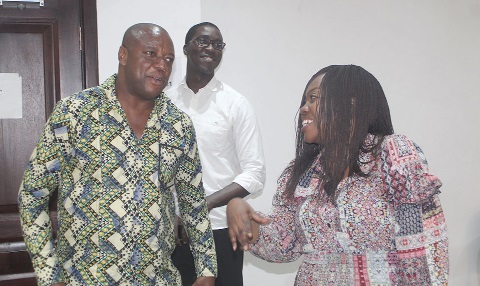
Prioritise students’ safety in school — Stakeholders
To mark this year’s International Day of the Girl Child, stakeholders have called on policymakers to prioritise the safety of students, especially girls, in schools.
Also, they urged policymakers to advance and implement existing policies that ensure students are protected from all forms of violence, both in person and online.
They made the call when Women in Law & Development in Africa, Ghana (WiLDAF Ghana), a non-profit organisation, organised a roundtable discussion on how to promote safe school policies in the educational sector in Accra.
It was also to present the findings of a scoping study conducted by the organisation to examine existing policies, laws and national mechanisms on School-Related Gender-Based Violence in Ghana (SRGBV).
The study is dubbed “Review of Laws and National Mechanisms on School-Related Gender-Based Violence in Ghana (SRGBV)”. It explored the effectiveness of the country's institutional frameworks in addressing gender-based violence within the educational sector.
The study formed part of WiLDAF Ghana’s four-year project funded by the Danish International Development Agency (DANIDA) to address gender-based violence in schools.
The project, in collaboration with Oxfam Ghana and other partners, aims to foster gender-transformative education, with a focus on the SRGBV.
The discussion brought together key stakeholders from the Ghana Education Service(GES), the Ministry of Gender, Children and Social Protection (MOGCSP), the Judicial Service, the Ghana Police Service and civil society organisations to discuss the various forms of violence that continue to affect students across the country.
Findings
A Senior Lecturer, Department of Distance Education, University of Ghana (UG) and consultant for the SRGBV project, Simon Peter Aheto, said the research focused on identifying laws and policies that addressed school-related gender-based violence (GBV) in pre- and tertiary education.
He said although legal frameworks existed, cultural norms hindered their implementation, which led to underreported incidents and the proper application of punishments for offences.
Implementation
The WiLDAF Ghana, Programme Manager, Lois Aduamoah-Addo, said, “It is not just about policy; it’s about implementation and accountability to ensure schools become safe spaces for learning and growth.”
She called for the development of a practical toolkit to equip schools, teachers and administrators with effective strategies to prevent and respond to incidents of SRGBV.
The National Programmes Coordinator, WiLDAF Ghana, Melody Darkey, also stressed the need for policymakers to prioritise proper enforcement of existing laws to address the cultural barriers.
Commitment
The Municipal Director Ghana Education Service (GES), Awutu Senya-East, Faustina Alimatu Braimah, said GES was committed to fostering a culture of accountability, safety and empowerment in all their institutions.
She said there were existing administrative regulations and codes of conduct that governed their profession.
A representative of Oxfam Ghana, Mohammed Mahamadu, reaffirmed the entitiy’scommitment to fighting inequality and poverty through policy interventions.
